I have a Laravel 5.7 application using spatie/laravel-permission and normal IDs for models. I want to transition to using UUIDs and I've taken the steps mentioned in webpatser/laravel-uuid Readme file. Everything works with my own models, e.g. with User, Model A, Model B etc. and the relations seem fine, but I cannot seem to make the uuid's work with Spatie's permissions.
When I want to assign a role (and associated permissions) to an object, I get the following error. This happens when I try to register a User and assign him a Role.
As you can see in this image, the role_id from Spatie is transmitted into this query as an integer. Now it is 342, in other cases it is similar to 705293
I have defined a Uuids.php trait in my /app folder accordingly and added for all the models, including Permission.php and Role.php the following code:
public $incrementing = false;
protected $keyType = 'string';
use Uuids;
protected $casts = [
'id' => 'string',
];
I know that this works with any other model and relation, but just not with Spatie's permissions and it seems that the role_id is converted differently in the internal functions (like assignRole('') from a 36chars string to something else. If I query the Roles or Permissions I get the correct string id.
Anything that I might be missing or does anyone knows a fix for this?
Later edit: this is my original migration for Spatie:
<?php
use Illuminate\Support\Facades\Schema;
use Illuminate\Database\Schema\Blueprint;
use Illuminate\Database\Migrations\Migration;
class CreatePermissionTables extends Migration
{
/**
* Run the migrations.
*
* @return void
*/
public function up()
{
$tableNames = config('permission.table_names');
$columnNames = config('permission.column_names');
Schema::create($tableNames['permissions'], function (Blueprint $table) {
$table->uuid('id');
$table->primary('id');
$table->string('name');
$table->string('guard_name');
$table->timestamps();
});
Schema::create($tableNames['roles'], function (Blueprint $table) {
$table->uuid('id');
$table->primary('id');
$table->string('name');
$table->string('guard_name');
$table->timestamps();
});
Schema::create($tableNames['model_has_permissions'], function (Blueprint $table) use ($tableNames, $columnNames) {
$table->uuid('permission_id');
$table->string('model_type');
$table->uuid($columnNames['model_morph_key']);
$table->index([$columnNames['model_morph_key'], 'model_type', ]);
$table->foreign('permission_id')
->references('id')
->on($tableNames['permissions'])
->onDelete('cascade');
$table->primary(
['permission_id', $columnNames['model_morph_key'], 'model_type'],
'model_has_permissions_permission_model_type_primary'
);
});
Schema::create($tableNames['model_has_roles'], function (Blueprint $table) use ($tableNames, $columnNames) {
$table->uuid('role_id');
$table->string('model_type');
$table->uuid($columnNames['model_morph_key']);
$table->index([$columnNames['model_morph_key'], 'model_type', ]);
$table->foreign('role_id')
->references('id')
->on($tableNames['roles'])
->onDelete('cascade');
$table->primary(
['role_id', $columnNames['model_morph_key'], 'model_type'],
'model_has_roles_role_model_type_primary'
);
});
Schema::create($tableNames['role_has_permissions'], function (Blueprint $table) use ($tableNames) {
$table->uuid('permission_id');
$table->uuid('role_id');
$table->foreign('permission_id')
->references('id')
->on($tableNames['permissions'])
->onDelete('cascade');
$table->foreign('role_id')
->references('id')
->on($tableNames['roles'])
->onDelete('cascade');
$table->primary(['permission_id', 'role_id']);
app('cache')->forget('spatie.permission.cache');
});
}
//Reverse the migrations.
public function down()
{
$tableNames = config('permission.table_names');
Schema::drop($tableNames['role_has_permissions']);
Schema::drop($tableNames['model_has_roles']);
Schema::drop($tableNames['model_has_permissions']);
Schema::drop($tableNames['roles']);
Schema::drop($tableNames['permissions']);
}
}
This is an example of how the Roles and permissions are stored (working)
Same is for Permissions. So their _id is correct. The issue is somewhere in Laravel or in Spatie that it sends another value to the DB when trying to add a Role to a Model.

